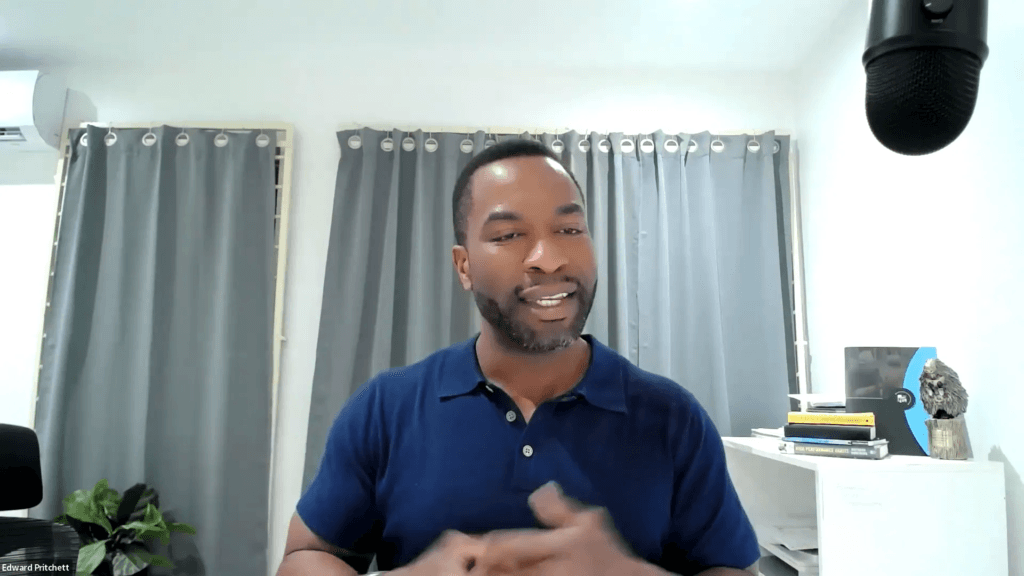היום, חשוב להבין את היסודות של פוליסות ביטוח. הידע הזה יכול להגן על העתיד הפיננסי שלך. עם כל כך הרבה אפשרויות לביטוח, חשוב לדעת מה משמעות המונחים. זה עוזר לך לקבל החלטות חכמות. בין אם זה ביטוח בריאות, רכב או בית, הבנת הפוליסה שלך היא המפתח.
מאמר זה פורק את היסודות. תלמד על סוגי כיסוי שונים ומונחים חשובים. בכך תקבל מדריך ברור לפוליסות ביטוח.
מסקנות מרכזיות
- הבנת יסודות פוליסת ביטוח עוזרת בקבלת החלטות מושכלות.
- היכרות עם מונחי ביטוח חיוניים חיונית לתקשורת אפקטיבית.
- סוגי כיסוי ביטוח שונים מותאמים לצרכים ספציפיים.
- מודעות ל-מגבלות כיסוי יכולה למנוע אובדן פיננסי במהלך טענות.
- ידע על תהליך טענה הוא חיוני כדי להבטיח פיצויים בזמן.
מבוא לפוליסות ביטוח
המבוא לביטוח מציג כיצד פוליסות ביטוח מגן עלינו מבעיות כלכליות בלתי צפויות. זהן הסכמים בין הביטחון לבינך שמציינים מה כלול בביטוח. הבנת היסודות של סקירת פוליסת ביטוח עוזרת בבחירות חכמות בנוגע לנכסים שלך.
קיימים סוגים שונים של פוליסות ביטוח, כל אחת מותאמת למצבים שונים. מביטוח בריאות ועד ביטוח בית, הם עוזרים להפחתת המכה הכלכלית של אירועים בלתי צפויים. תאונות, אסונות טבע ובעיות בריאות הם סוגי סיכונים שהפוליסות הללו מכסות.
הבנת מונחי ביטוח חשובה גם. "כיסוי" מתייחס למה שכלול בפוליסה, בעוד "יתרונות" הם היתרונות שאתה מקבל אם אתה מגיש טענה. להבין את המונחים הללו הוא קריטי לניווט בעולם הביטוח היום.
אנשים לעתים קרובות מקבלים ביטוח כדי להרגיש יותר מאובטחים לגבי העתיד. זה מציע רשת ביטחון כלכלית לחירום. עסקים גם רוכשים ביטוח כדי להגן על נכסיהם ולשמור על פעולותיהם רצופות, גם כאשר הזמנים מתקשים.
| סוג פוליסת ביטוח | כיסוי המסופק | מומלץ עבור |
|---|---|---|
| ביטוח בריאות | הוצאות רפואיות וטיפולים | אנשים ומשפחות |
| ביטוח רכב | נזק לרכב ואחריות | בעלי רכב ונהגים |
| ביטוח בעלי בתים | נזק לרכוש ואחריות אישית | בעלי בתים |
| ביטוח חיים | תמיכה פיננסית למוטבים | אנשים עם תלויים |
פוליסות ביטוח משחקות תפקיד חשוב בביטחון הכלכלי שלנו. להכיר בפוליסת ביטוח יכול לעזור למנוע אסונות כלכליים. לדעת על ביטוחים שונים מאפשר לאנשים לבחור את הטוב ביותר עבורם. בכך הם יכולים להגן על עתידם.
מונחים מרכזיים בפוליסות ביטוח
למידת מונחים חשובים בביטוח עוזרת לבעלי פוליסה להבין את בחירות הכיסוי שלהם. נסתכל על שלושה מונחים מרכזיים: דמי ביטוח, השתתפות עצמית, ו- פריסת עצמית. כל אחד משחק תפקיד חשוב בעלות הכוללת ובמה שאתה אחראי לשלם.
הבנת דמי ביטוח
דמי ביטוח הם מה שאתה משלם עבור הביטוח שלך, בדרך כלל כל חודש. הם משתנים בהתאם לדברים כמו סוג הביטוח, התיחום של הכיסוי, והסיכון האישי שלך. יותר כיסוי בדרך כלל אומר דמי ביטוח גבוהים יותר, בעוד כיסוי פחות עשוי לעלות פחות.
השתתפויות ופריסות עצמית
השתתפויות ופריסות עצמית חשובות באופן שבו תביעות עובדות. פריסה עצמית היא מה שאתה משלם לפני שהביטוח שלך מכסה את העלויות. זה משפיע על עלויות הפריסה; לשלם יותר מהכיס שלך יכול להוריד את הדמי הביטוח החודשי שלך.
תשלומים עצמיים הם דמי עצמאות קבועים עבור שירותים מסוימים, כמו לקבלת טיפול מרופא או רכישת תרופות. לדעת כיצד הם מתאימים לתמונה הכללית של הביטוח יכול לעזור לשלוט בעלויות בריאות ולבחור את הכיסוי הטוב ביותר.

| מונח | הגדרה | השפעה על עלויות |
|---|---|---|
| פרמיום | סכום התשלום עבור כיסוי ביטוח | מקבע את ההוצאה החודשית על ביטוח |
| השתתפות עצמית | הסכום שיש לשלם מכיס הכיסוי | משפיע על עלויות הפרמיום; ההשתתפות העצמית גבוהה כלל מורידה את הפרמיום |
| תשלום עצמי | תשלום קבוע עבור שירותים ספציפיים | אחראי על עלויות שונות בהתאם לסוג השירות |
סוגי פוליסות ביטוח
ללמוד על סוגי ביטוח שונים הוא חשוב לכל מי שמחפש להגן על נכסיו. כל סוג מציע יתרונות ייחודיים לצרכים שונים. כאן, אנו מכסים את הסוגים העיקריים של ביטוח, עוקפים על מה שהם מציעים ומה לא.
ביטוח בריאות
ביטוח בריאות חשוב לכיסוי חשבונות רפואיים. זה עוזר עם עלויות ביקורים ברופא, שהיות בבית חולים ותרופות. ניתן לקבל תוכניות בריאות שונות, מהטבות עבודה ועד מדיקר.
- שירותים מונעים
- טיפול חירום
- כיסוי תרופות מרשם
עם זאת, לא כל דבר עשוי להיות מכוסה, כמו דברים קוסמטיים או טיפולים לא חיוניים. לבחור תוכנית ביטוח בריאות טובה הוא עניין גדול לשניים – הבריאות שלך והארנק שלך.
ביטוח רכב
ביטוח רכב הוא לבעלי רכבים להגנה על נזקים או פציעות שהם גורמים. זה חיוני במקומות רבים. בנוסף, זה נותן לך שקט נפש בזמן הנהיגה. הכיסוי כולל בדרך כלל:
- נזקי התנגשות
- תביעות אחריות
- הגנת פציעה אישית
אך זכור, ישנם הגבלות. דברים כמו נהיגה תחת השפעת אלכוהול או שימוש ברכב לצורכי עסקים עשויים שלא להיות מוגנים.
ביטוח בעלי בתים
ביטוח בעלי בתים עוזר למנוע אובדן כספים מדברים כמו גניבות או אסונות טבעיים. הוא מכסה את הבית שלך, רכושך, וכל תביעות פציעה נגדך. חלקים נפוצים בביטוח זה כוללים:
- הגנת הדיור
- כיסוי רכוש אישי
- כיסוי אחריות
אך חשוב לדעת, כמה סיכונים כמו שיטפונות או רעידות אדמה עשויים לדרוש כיסוי נוסף. הבנת הפוליסה שלך היטב מגן על ההשקעה הכי גדולה שלך.

| סוג ביטוח | כיסוי ראשי | אילוצים נפוצים |
|---|---|---|
| ביטוח בריאות | הוצאות רפואיות, אשפוז | פרוצדורות קוסמטיות, טיפולים מסוימים |
| ביטוח רכב | נזק לרכב, כיסוי אחריות | נהיגה תחת השפעת אלכוהול, שימוש מסחרי |
| ביטוח בעלי בתים | הגנת רכוש, אחריות | שיטפונות, רעידות אדמה |
יסודות מדיניות ביטוח: מהם המגבלות בכיסוי?
חשוב להבין מגבלות בכיסוי לכל מי שמקבל כיסוי ביטוח. מגבלות אלו הן הסכום המרבי שביטוח ישלם עבור ההפסד. לדעתן עוזרת לאנשים לשקול את הרשת הביטחון שלהם במצבים קשים.
בחירת מגבלות בכיסוי תלויה בכמה דברים. אלו כוללים את סוג הביטוח, ערך הפריט המבוטח, והסיכונים הספציפיים. חכם לעדכן את המגבלות הללו כדי להישאר מוגן נגד סיכונים חדשים.
הנה כיצד מגבלות בכיסוי משפיעות על דרישות:
- אם ההפסד גדול מהמגבלה, בעל הפוליסה משלם את ההבדל.
- מקסימום כיסוי גבוה מביא לרוגע רוח יותר לנכסים גדולים.
- כיסוי לא מספיק עשוי לגרום לבעיות כספיות במהלך השיקום.

לבחירות חכמות, הנה מדריך על סוגי ביטוח נפוצים וסכומי כיסוי מרבי טיפוליים:
| סוג ביטוח | גבולות כיסוי טיפוליים רגילים |
|---|---|
| ביטוח בריאות | $1 מיליון עד $5 מיליון לאדם |
| ביטוח רכב | $50,000 לפציעות לאדם, $100,000 לתאונה |
| ביטוח בעלי בתים | זה נע בין $100,000 ל-$500,000 לבית |
זה רעיון טוב לבדוק ולהתאים מגבלות כיסוי מעת לעת. זה עוזר לשמור על כמות ההגנה הנכונה. הבנת המגבלות הללו היא מפתח לעתיד פיננסי מאובטח.
סקירת תהליך טיפול בתביעה
זה חיוני לכל בעל פוליסה להבין את תהליך התביעה. הידע הזה מבטיח שתקבלו את יתרת הביטוח שלכם. השלב הראשון הוא לדווח על האירוע לספק הביטוח שלכם. לאחר מכן, יש להגיש מסמכים נחוצים כמו תיאורי אירוע, תמונות או חשבוניות.
שלבים להגשת תביעה
לאסוף את כל המסמכים ולמלא את טופס התביעה של הביטוח שלכם. לתאר את האירוע והנזקים באופן ברור. ודאו שכל המידע שלכם נכון כדי למנוע בעיות. לאחר שתגישו את התביעה שלכם, הביטוח שלכם יבדוק אותה. הם עשויים להתקשר אליכם לפרטים נוספים. הביטוח שלכם ישמור עליכם בנוגע לגרסת הזמן.
סיבות נפוצות לדחיית תביעה
הרבה אנשים רואים את התביעות שלהם נדחות מסיבות שונות. לעיתים קרובות, זה קשור לאי התאמה לאזורי האיום או לא עמידה בסכומי השיעור. לפעמים, תיעוד שלם או פגיעה במועדי ההגשה עשויים לגרום לדחיית תביעה גם. לדעת את הטעויות הנפוצות הללו יכול לעזור לכם להצליח בתביעה שלכם.


















